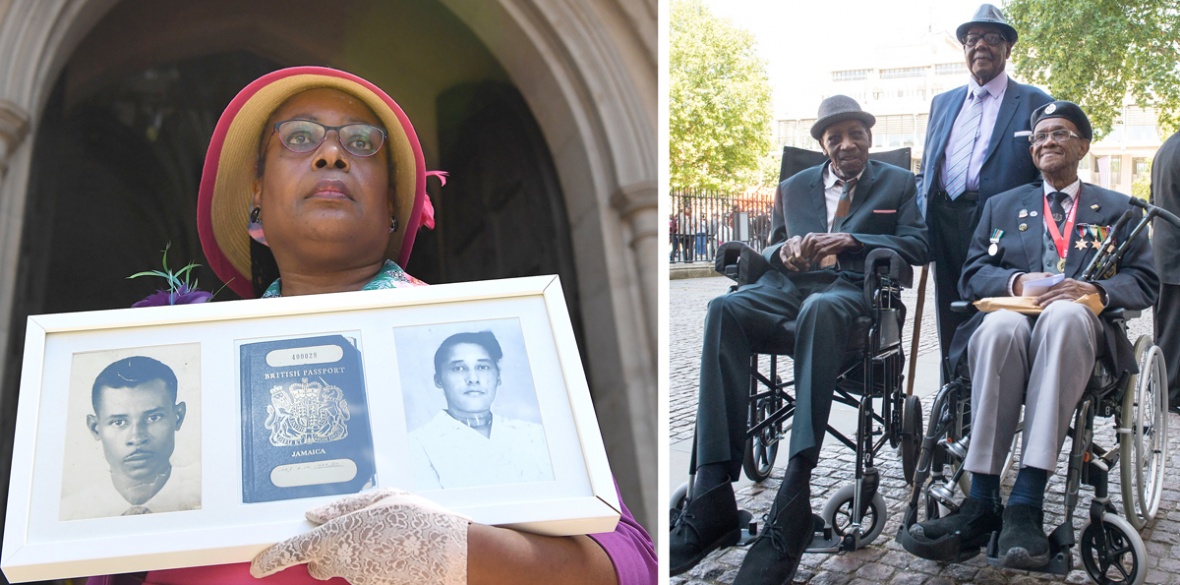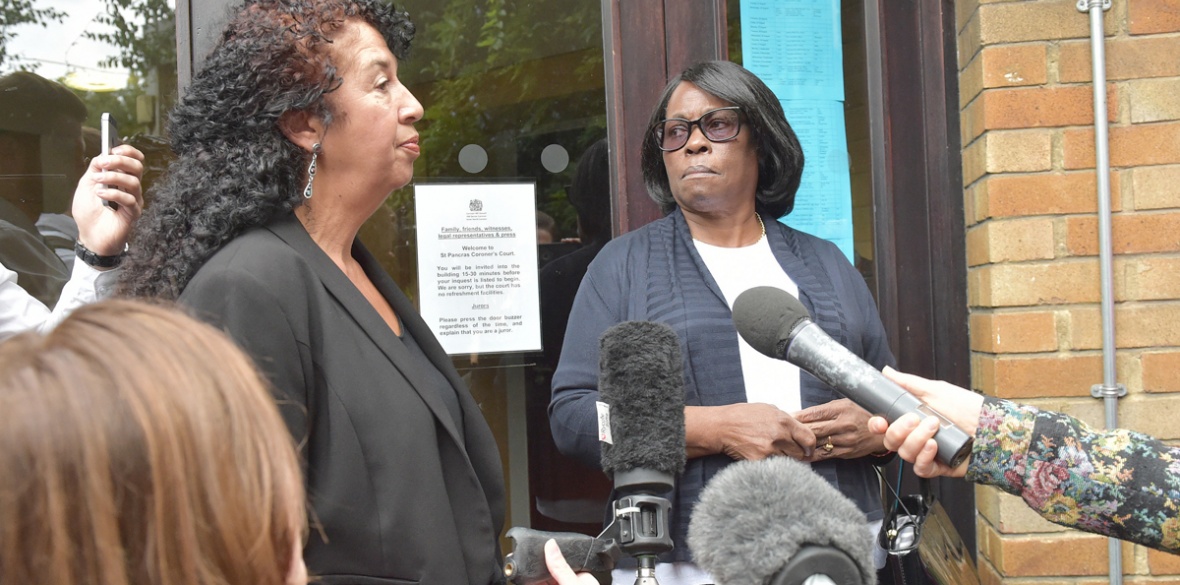This is the last article you can read this month
You can read more article this month
You can read more articles this month
Sorry your limit is up for this month
Reset on:
Please help support the Morning Star by subscribing here
I’M the middle of three children of immigrants from Jamaica. My dad arrived first in 1960 to start what was to be 30 years of work on British Rail.
He was followed a year later by my mom who raised us kids while holding down part-time mainly cleaning jobs.
I will never need anyone to explain to me what hard work and dedication to your family looks like. We saw it every day.
I also do not need lectures about what a “hostile environment” means as if it’s something that Theresa May dreamt up all by herself. We lived it every day.
From abusive white neighbours objecting to us daring to occupy their street, to the name-calling at work that I know my dad experienced but never talked about, to the cowardly racist attacks on my mom. This was our reality.
I also need no explanations about how racism plays out in schools as my brother, sister and I have the scars to show from running the gauntlet just to get to school sometimes never mind trying to achieve anything once we arrived.
These were the 1960s and 1970s but they could easily be right now. Each of the experiences I have described will be recognised by black communities across the country today — in the 21st century.
Our lives continue to be based on making ends meet, keeping a roof over our heads and the daily quest to make sure that there is enough bread on the table to feed our families.
I know what it’s like because I’ve lived it.
I don’t need to have racism “whitesplained” to me as someone recently tried to do after a meeting I addressed recently. Anyone who has been an acquaintance of mine for more than a nano second will know that particular encounter didn’t end well.
I make these points not to state the obvious — although I no doubt have — and not to kick out at what I am sure are well meaning folks but to ask you all to actually listen to what Black people are saying. Those who feel it know it.
All too often the debate on racism — if there is a debate — takes place on the terrain that others feel more comfortable rather than on the basis of the everyday experiences of the black community.
Fighting against the far right, for example, is critically important. It’s something that needs all our energies and organisational capacity to defeat — as is fighting the institutional racism that still pervades workplaces throughout the country and, sadly, some parts of our labour and trade union movement.
We were “unpeopled” and faced deportation back to places many of us hardly knew
The battle against institutional racism within and outside our movement has not been won. Far from it! Black workers are still underrepresented throughout our movement — even though, from my dad’s time at work, until recently we were the most loyal trade unionists.
We black workers still face almost routine workplace racism in many occupations that, to be frank, shows little sign of easing never mind going away.
Hostile environment? No! It’s racism and we should call it what it is.
How do I know these things? Because I listen to what other Black workers have to say at places like the Unison Black Workers Conference, one of the largest gatherings of Black workers anywhere in the diaspora with its 800 delegates from across the public services, and the TUC Black Workers Conference, bringing together Black workers from across the movement.
The message is always the same from these gatherings. It’s the same message that our parents were given. Work hard and you will be fine. That was the deal we were told was on offer. Our parents were basically sold a pup as we are today if we still believe that to be the case.
Fighting the institutional racism that still pervades workplaces throughout the country and, sadly, some parts of our labour and trade union movement is critically important
Our parents were made promises for the pension schemes they paid into. They were led to believe that when they retired they might have enough money to be able to “go back home” to leave work having done their duty to the so-called “motherland.” That deal was reneged on with Black workers finding out this was not to be the case. They found themselves in pensioner poverty.
Hostile environment? No! It’s racism! Let’s call it what it is!
Then our families get told — “look, you know we told you that you were British so you would come over and work long hours, do the permanent nights, clean our toilets and take our abuse?
“Well, we didn’t mean it — except for the abuse.” Our families had to face the indignity of finding official papers that nobody ever told us we had to keep just to prove our existence. If we couldn’t do this we were “unpeopled” and faced deportation back to places many of us hardly, if at all, knew.
Hostile environment? No! It’s racism and we should call it what it is!
There’s a running joke among some of my friends and comrades that I sometimes say in my speeches that I’m vexed. It gets a laugh and I’m glad to oblige. But I am actually really vexed and I’m not the only one as we commemorate Windrush Day.
Trust me when I say that the black community has had enough and we are self-organising so that our unfiltered voice can be heard. And it will!
Roger McKenzie is an assistant general secretary of Unison.












